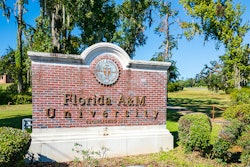FROSTBURG Md.
Frostburg State University instructor Sunshine Brosi leads a half-dozen earnest undergraduates 20 yards through the underbrush of a shady forest. Stooping near some black cherry trees, she plucks a pear-shaped yellow berry as long as her thumb from a shin-high plant with large, graceful leaves.
It’s mayapple, a plant with a sweet-tart fruit that can be made into jelly, and poisonous roots containing chemical compounds that are used to treat genital warts and some skin cancers.
The scribbling students are getting an introduction to ethnobotany, the study of how people of a particular culture use native plants. Frostburg State is among the first schools in the nation to offer a bachelor’s degree in the discipline.
The program, launched in August, is part of a new effort to understand and capitalize on the centuries-old herbal traditions of the central Appalachian mountains. Created by Frostburg State, West Virginia University and the University of Maryland Biotechnology Institute, the Appalachian Center for Ethnobotanical Studies aims to foster economic growth in the region through managed development of medicinal plants.
“Part of the whole economic development is determining what nontimber forest products are viable and would have the best opportunities for farmers,” Brosi said.
Of immediate interest are ginseng, goldenseal and black cohosh plants familiar to anyone who has followed the nearly $4 billion-a-year marketing of herbal supplements. Beside teaching the traditional uses of these plants, the center is seeking research funds to test the efficacy of not just the specific compounds scientists have already identified and often dismissed as ineffective but the interaction of an herb’s many ingredients or of different herbs taken together.














